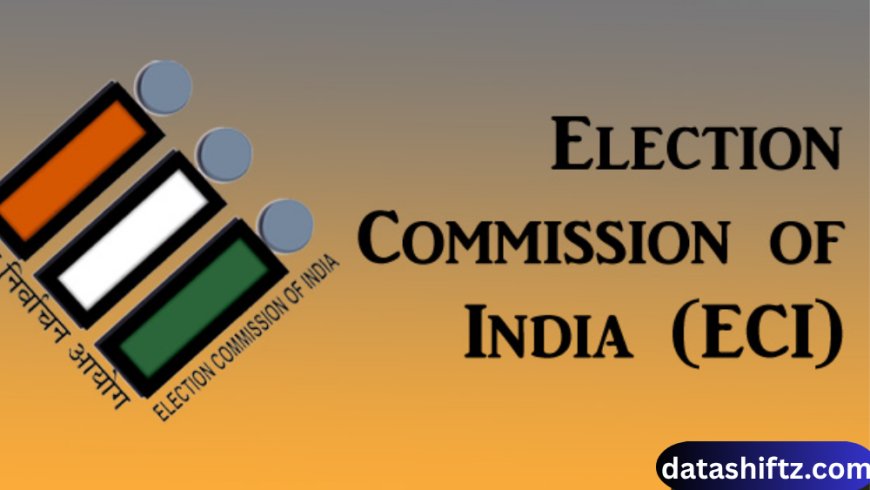Election Commission of India: Guardian of Democracy

Introduction
The Election Commission of India (ECI) stands as a cornerstone of India's democratic framework. Established by the Constitution of India, it ensures the conduct of free, fair, and transparent elections across the nation. From the bustling streets of Mumbai to the serene landscapes of Ladakh, the ECI's role is pivotal in upholding the democratic ethos of the country.
Constitutional Mandate and Establishment
Constitutional Foundation
The ECI was established under Article 324 of the Indian Constitution, which vests the superintendence, direction, and control of elections to the Parliament, State Legislatures, and the offices of the President and Vice-President in the Election Commission. This provision underscores the autonomy and authority granted to the ECI to oversee the electoral process without external interference.
Evolution of the Commission
Initially, the ECI was a single-member body. However, recognizing the growing complexities of conducting elections in a vast country like India, the commission's structure evolved:
-
1989: The commission expanded to a multi-member body with the appointment of two additional Election Commissioners.
-
1990: The multi-member structure was reverted to a single-member body.
-
1993: The multi-member structure was reinstated, comprising a Chief Election Commissioner and two Election Commissioners, a structure that continues today.
Composition and Appointment
Current Structure
As of October 2025, the ECI comprises three members:
-
Chief Election Commissioner (CEC): Gyanesh Kumar
-
Election Commissioner: Sukhbir Singh Sandhu
-
Election Commissioner: Vivek Joshi
Appointment Process
Members of the ECI are appointed by the President of India on the recommendation of a three-membered Selection Committee, which includes:
-
The Prime Minister of India
-
A Union Minister nominated by the Prime Minister
-
The Leader of Opposition (LoP) in the Lok Sabha
This process ensures a balanced and transparent approach to appointments, maintaining the commission's independence
Powers and Functions
Superintendence and Control
The ECI exercises superintendence, direction, and control over the entire electoral process, including:
-
Preparation and revision of electoral rolls
-
Delimitation of constituencies
-
Conduct of elections and by-elections
-
Monitoring election expenditure
Administrative Functions
The commission administers the Model Code of Conduct, ensuring that political parties and candidates adhere to ethical standards during campaigns. It also allocates symbols to political parties and monitors their compliance with electoral laws.
Quasi-Judicial Functions
The ECI has the authority to adjudicate disputes related to the recognition of political parties and allotment of election symbols. It also addresses complaints regarding electoral malpractices and can take corrective actions as deemed necessary.
Recent Initiatives and Reforms
Voter Accessibility Enhancements
In response to a new Election Commission rule reducing the maximum electors per polling booth from 1,500 to 1,200, the Indore election office proposed the addition of 585 new polling stations. This initiative aims to improve accessibility for around 28.65 lakh voters in the district, ensuring a smoother voting process
Technological Advancements
The ECI has introduced several technological initiatives to streamline the electoral process:
-
Voter Helpline App: Provides voters with information on polling stations, voter status, and election-related updates.
-
E-EPIC: Digital Voter ID cards to facilitate easy access and verification.
-
Voter Verifiable Paper Audit Trail (VVPAT): Enhances the transparency and reliability of Electronic Voting Machines (EVMs).
Electoral Roll Revisions
Ahead of the upcoming Bihar assembly elections, the ECI released the final voter list following a Special Intensive Revision (SIR). This updated roll shows a substantial increase of 21.53 lakh electors across the state, indicating a large-scale preparation effort for the forthcoming electoral process
Challenges and Criticisms
Voter Awareness
Despite efforts, voter turnout remains a concern in certain regions. Factors such as lack of awareness, logistical challenges, and voter apathy contribute to this issue.
Electoral Malpractices
Instances of electoral malpractices, including vote-buying and misuse of money power, continue to pose challenges. The ECI has been proactive in addressing these issues through stringent monitoring and enforcement measures.
Technological Vulnerabilities
While technological advancements have improved the electoral process, they also introduce new challenges, such as cybersecurity threats and the digital divide, which can affect the inclusivity of elections.
Conclusion
The Election Commission of India plays a pivotal role in safeguarding the democratic fabric of the nation. Through its constitutional mandate, administrative functions, and continuous reforms, the ECI strives to ensure that every citizen's vote counts. As India continues to evolve, the ECI's commitment to free, fair, and transparent elections remains steadfast, reinforcing the nation's democratic ideals.




























